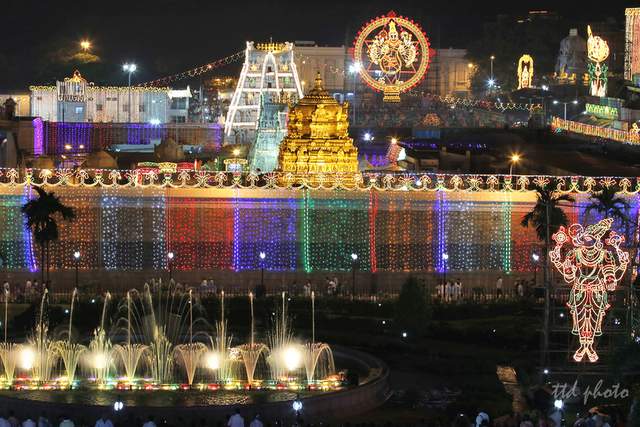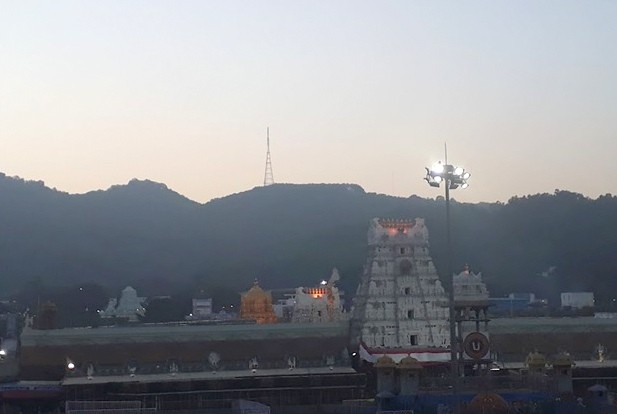Planning a visit to the popular Tirumala Tirupati Devasthanam – Get insights and understand the darshan process.
The Varaha Kavacham (a prayer invoking Vishnu as Varaha swamy-the boar avatar for becoming an armor around us) from the Skanda Puranam says:
आद्यं रङ्गमिति प्रोक्तं विमानं रङ्गसंज्ञितम् ।
श्रीमुष्णं वेङ्कटाद्रिं च साळग्रामं च नैमिशम् ॥
तोयाद्रिं पुष्करं चैव नरनारायणाश्रमम् ।
अष्टौ मे मूर्तयः सन्ति स्वयं व्यक्ता महीतले II
The gist of these shlokas is that there are eight “swayam vyakta” or self-manifested sites of Shree Vishnu. Meaning the murtis here were not sculpted by a god or king or human. These are Srirangam Ranganatha vimana, Srimushnam, Tirumala Venkatadri, Salagrama, Naimisharanayam, Toyadri (Totadri), Pushkar and Naranarayana ashrama or Badrinath.

Tirumala Tirupati Devasthanam Visit
Located at Tirupati, this divya desam (a divya desam is a temple of Shree Narayana that has been praised by Alwars or saint-poets) attracts countless devotees and seekers. “Tiru” means Shree Lakshmi and “Pati” means “Lord”. Similarly “Tirumala” as “Tiru” also means respected and holy – “the holy mountain”. The temple worships Shree Vishnu as Shree Venkateshwara. The meaning of the name “Venkateshwara” is the “Ishwar who cuts away sins”.


There are seven hills in this Seshachalam range where Lakshmi and Narayana reside (called so after the Ananta or Sesha = snake of Mahavishnu). They are Seshadri, Neeladri, Garudadri, Anjanadri, Vrushabhadri, Narayanadri, and Venkatadri. Hence, the name Saptagiri or Seven Hills. The ghat road (road on the mountain) between Tirupati (the city) and Tirumala (the holy mountain) is known for the “Eparchaean Unconformity”. This is a significant event in the geological history of the Earth.
Holy Water Springs
There are many holy water springs (Teertham) like the Chakra Teertham, Shankhu Teertam, Papavinashanam Falls, Akash Ganga, Kumaradhara waterfalls, etc. The…
Click Here to Read the Full Original Article at Inditales…